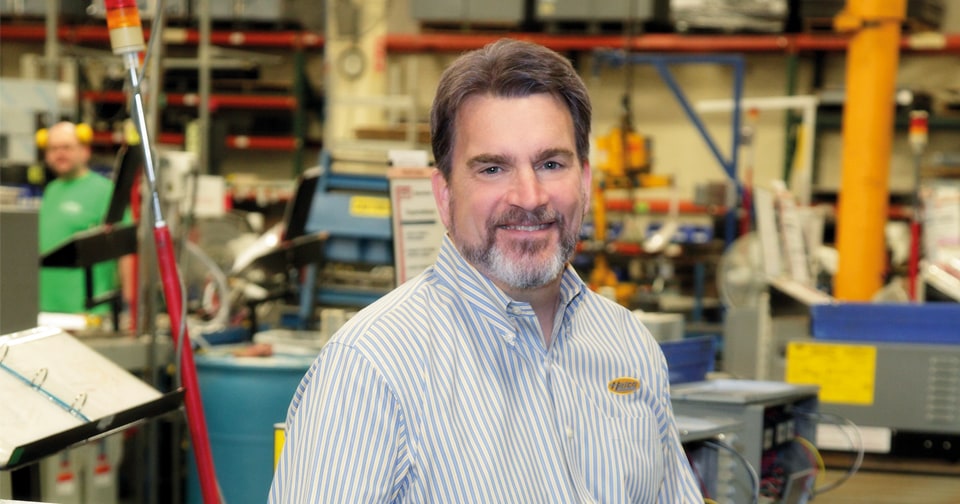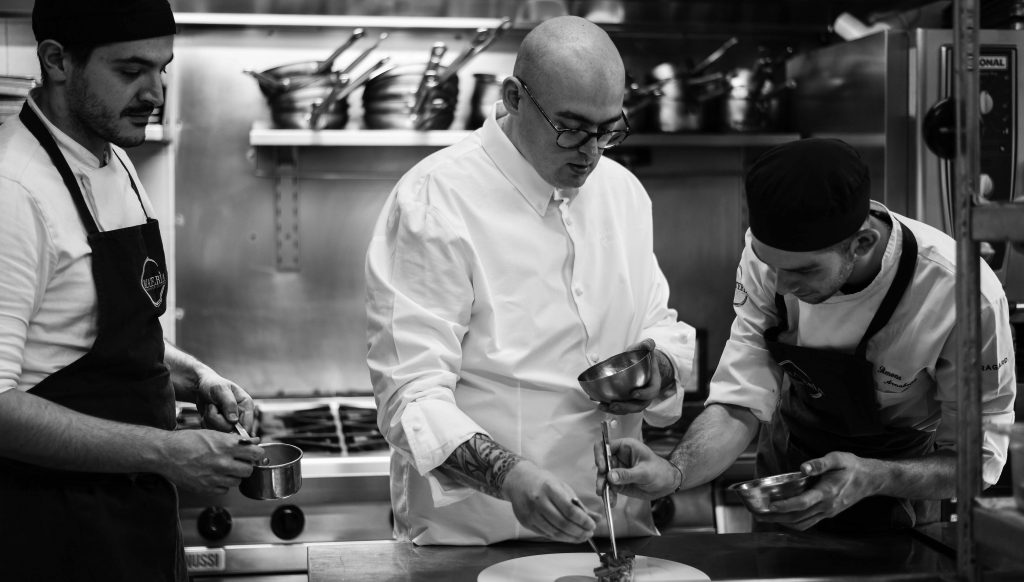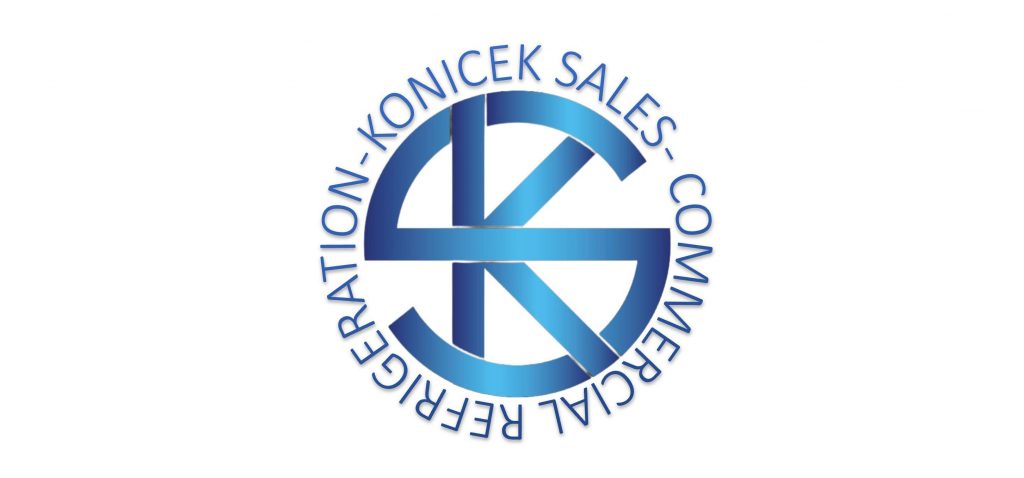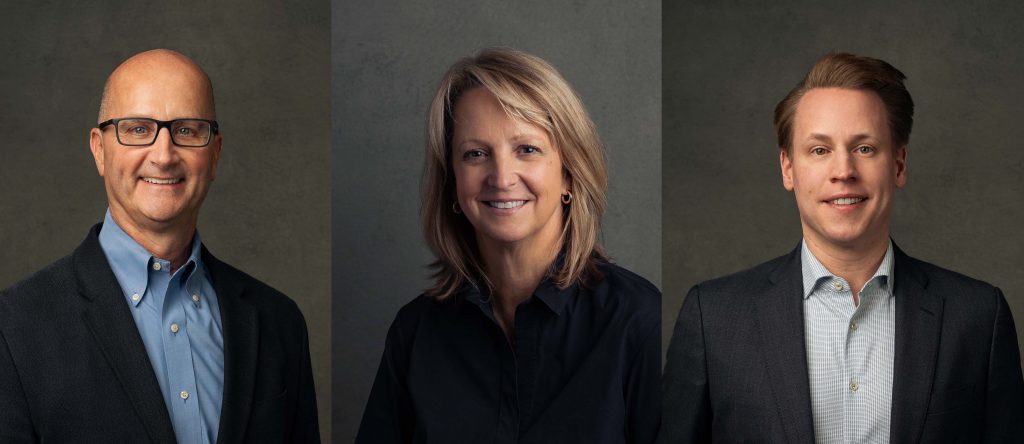
Founded in 1950 in a small factory in Milwaukee, US, Hatco Corporation is 67 years young. Its longevity and the respect it commands in the industry is testament to decades of strong leadership, its good-humored approach to business and for its innovative product range – from heated cabinets, light cooking equipment and heated wells to portable food warmers, to highlight just a few.
For its president and CEO David Rolston, a qualified engineer who joined the company in 1994 in a technical sales capacity, the company continues to honor the entrepreneurial spirit its founders, husband and wife Gordon and LaReine Hatch, imbued in Hatco from the outset.
“Gordon was an engineer. He invented Hatco’s first product, the Electric Booster Water Heater. It was a game-changer,” says Rolston. “At the time there was no reliable piece of equipment that would heat water to that 180ºF sanitizing temperature and hold it.”
While Gordon Hatch was, says Rolston, “interested in everything ” from an engineering perspective, LaReine, who remained president of the business after Gordon’s death, was renowned for being exceptionally generous but also strong willed. Their respective characters forged the company that Hatco is today.
Family ties
“I never knew LaReine, but I understand she had an outgoing personality. She loved hats, wearing a different one every day at trade shows. One of our retired executives told me it was his job to make sure LaReine’s hat boxes got to her hotel room for each show,” laughs Rolston. “I believe she was also a bit of a taskmaster. She drove a fairly hard bargain.”
David Hatch’s great sense of humor was a massive influence on Hatco’s hugely admired working culture. Anybody who has attended a Hatco ‘theme party’ at The NAFEM Show or received a Christmas card from the firm will attest to this – the company likes to have fun when going about its business. “We talk about work hard and play hard,” says Rolston.
“There’s no reason business can’t be fun. Sure, it’s challenging, but we’ve gotten through every downturn, and there have been a few, without laying people off. We’ve just bitten the bullet and taken the opportunity to improve our processes and products. We kept our people and it was good for us. When the economy came back each time, we were stronger.”
Blending a keen interest in marketing with technical knowledge David Hatch also helped to firmly establish Hatco as an international company by the late 1980s. “He just decided that it was something he wanted to do,” says Rolston.
By 2004, and with Hatco’s global sales now firmly established, Hatch had been, “saying for 10 years at least he was going to sell the company to the employees and retire aged 55. And he actually did it!” laughs Rolston. “When we asked him how he was going to do it, he’d always say: ‘I don’t know. When it gets close to the time, I’ll figure out the best way to do it.’ By 2004, he did exactly what he had always said he was going to do.”
For the people
In 2004 the company underwent an employee stock ownership plan (ESOP), with Rolston becoming president and CEO. Hatco became 100% employee-owned in 2007.
“David Hatch is chairman of the board. We have a formal board of directors. A majority of our board members are from outside Hatco.That’s particularly important to an ESOP because if there are ever any questions, we want to prove we have good outside guidance,” says Rolston.
Hatco’s employee-owned structure gives the company a competitive advantage, “because our employees really care about what they’re doing,” says Rolston. “They have such a stake in the business they naturally think more about what they’re doing every day, focusing on quality and productivity. It’s almost a no-brainer when you think about it. If you own it you’re going to take care of it a lot better. It’s like renting a car versus buying it.”
While employees don’t have voting rights, all company shares are held in a qualified retirement trust. “One of the things we really focus on is succession planning,” says Rolston.
“As employee-owners we’re really motivated to get that right because after we retire it takes five years before we can get our money out. So we say to all managers: ‘You’ve got to hire people who are better than you. That’s going to help you when you leave.’ They have a vested interest in getting that done.”
With employees fully focused on continued success, it means there is a strong emphasis on ensuring a long-term pipeline of products. Rolston says Hatco has always used its customers as “a point of ideation” for innovation.“Customers will come to us and say, ‘Can you do this?’ and we’ll figure out how to do it. That idea will eventually get into our catalogue as a standard product of one kind or another. What I hear from customers is our products are very reliable. They are going to work well for a long time. The people that stand behind them are easy to do business with too. They know what they’re talking about. And they don’t leave.”
Growing together
International growth has continued under Rolston’s stewardship. To shorten the company’s supply line of products Hatco opened a factory in China in 2008, although 70% of products sold into China are still manufactured in its Sturgeon Bay, Wisconsin, factory, which has beenexpanded twice during that period.
“We needed to prove to our employees that we weren’t opening this factory in China to export their jobs. There’s nothing like expanding the factory in your own country to prove that point. We’ve expanded in the US 11 times since 1973. We’re actually in the middle of an expansion now,” says Rolston.
“David Hatch always used to say: ‘We want manageable, sustainable growth’. We were never looking to double our size in one year. That’s not our goal. We’re not out to be the next Middleby, but for the right opportunity and the right product lines, we would be very interested in acquisitions.”
While most of Hatco’s growth has been organic there have been a few acquisitions along the way, but primarily product acquisitions, rather than companies. “But we always have to make products our own,” says Rolston.
The one notable exception to this was the acquisition of oven manufacturer Ovention in 2013. “Culture and manufacturing-wise it was a good fit – it’s all our core competencies. Market-wise it was different enough so we chose to keep it as a separate brand. I don’t see that changing,” says Rolston.With Hatco now operating in 110 different countries, Rolston sees “a ton of opportunity” in Asia in particular, although he admits progress can sometimes be two steps forward, one step back when dealing with the “knockoffs” of reversed-engineered products in developing territories.
“We’ll do well with something until the copycats come along,” he says. “It’s probably much like the drug industry – as soon as generics are allowed, they lose some business and have to come up with something new and better.”
Listen and learn
Finding new and better comes naturally to Hatco. Rolston believes that’s down to a combination of factors. “We never let ourselves get comfortable. We’re always looking for new ways to improve and to increase product development speed,” he says. “That’s partly down to the ESOP but also because we believe in empowerment. We get people engaged in their jobs and don’t micromanage. We ask them challenging questions: ‘What do you think?’ ‘What are your three top solutions?’ Eventually they realise they’re making the decisions.
“Listening and keeping my mouth shut is key. Unfortunately a lot of leaders can’t do that. Being a good leader involves shutting up and letting people do their job, not telling them how to do it.”
Despite this approach, Rolston feels he is not necessarily “a people person” by nature. “Being an engineer, I am technically focused. I am an introvert. But just because you’re an introvert doesn’t mean you have to act like one.”
For Rolston, that means ensuring he spends time speaking to the team, listening to their challenges and ideas and sharing praise wherever it’s due.
“It’s important to celebrate success. You leave the house in the morning with 10 pennies in your left pocket and every time you give somebody recognition you move a penny to your right pocket. When you get home you should have all your pennies in your right pocket,” he laughs.Rolston reckons that paying it forward brings rewards. “In our customer service team we have as many people focusing on aftersales as we do prior to the service,” he says.
“We have six training schools a year, with 40 to 50 customers per training school, and we get lots of comments about how friendly our people are. People like to associate with businesses that are having fun and doing things well. We call them ‘raving fans’. Our goal is to get more ‘raving fans’.”
Raving fans for customers? Sounds like a fun business to work for. No wonder the employees decided to buy it.




